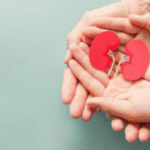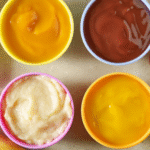Kidney stones are a common health problem that affect millions of people worldwide. They occur when minerals and salts in the urine crystallize and form hard deposits inside the kidneys. These stones can vary in size and may cause severe pain, discomfort, and other complications if not treated on time. The good news is that with advancements in medical science, there are multiple safe and effective options available for Kidney Stone Treatment. Understanding the causes, symptoms, and treatment methods can help individuals take the right steps toward recovery.
What Causes Kidney Stones?
Kidney stones form when urine becomes concentrated, allowing minerals to stick together and create crystals. Common causes include:
- Dehydration: Not drinking enough water increases the risk of stone formation.
- Dietary factors: High intake of salt, protein, or sugar can contribute.
- Medical conditions: Obesity, digestive issues, and urinary tract infections may increase risks.
- Genetics: A family history of kidney stones makes individuals more susceptible.
By addressing these causes through proper hydration, diet management, and regular check-ups, one can significantly reduce the chances of developing stones.
Symptoms of Kidney Stones
Not all kidney stones cause noticeable symptoms, especially if they are small. However, when stones move into the urinary tract, they can create intense discomfort. Common signs include:
- Sharp pain in the back or side
- Blood in urine
- Nausea or vomiting
- Frequent urge to urinate
- Burning sensation during urination
If these symptoms persist, immediate medical consultation is necessary to prevent complications.
Types of Kidney Stone Treatment
The treatment approach depends on the size, type, and location of the kidney stone. Doctors usually recommend one of the following:
1. Increased Fluid Intake
For small stones, drinking plenty of water helps flush them out naturally. A daily intake of 2–3 liters of water is often advised to promote smoother passage.
2. Medications
Certain medications help relieve pain and relax the urinary tract muscles, making it easier for stones to pass. Other drugs may be prescribed to control the level of minerals that form stones.
3. Extracorporeal Shock Wave Lithotripsy (ESWL)
This non-invasive method uses sound waves to break large stones into smaller pieces, which can then pass through urine. ESWL is widely used and highly effective for medium-sized stones.
4. Ureteroscopy
In this procedure, a thin scope is inserted into the urinary tract to locate and remove or break the stones. It is often used for stones stuck in the ureter.
5. Percutaneous Nephrolithotomy
For very large or complex stones, this minimally invasive surgical procedure is performed through a small incision in the back to remove the deposits directly.
6. Preventive Care
After successful treatment, lifestyle modifications and dietary adjustments are recommended to prevent recurrence. This may include limiting sodium intake, balancing calcium levels, and avoiding excessive protein consumption.
Natural Remedies and Lifestyle Changes
While medical treatments are effective, lifestyle changes play a crucial role in prevention. Some natural remedies include:
- Drinking lemon water, as citric acid helps prevent stone formation.
- Reducing caffeine and carbonated drinks that may trigger stone development.
- Including magnesium and potassium-rich foods like bananas, leafy greens, and nuts.
When to See a Doctor
Not all kidney stones require hospital treatment, but professional consultation is essential if:
- Pain becomes unbearable
- Fever or chills accompany symptoms
- Stones block urine flow
- Persistent blood in urine occurs
Timely diagnosis and treatment prevent long-term kidney damage.
Conclusion
Kidney stones can cause significant discomfort, but modern medical science offers a variety of safe and effective treatment options. From natural passage aided by hydration to advanced surgical methods, there is a solution for every case. Prevention through proper hydration, dietary changes, and lifestyle management remains the key to avoiding recurrence. By understanding the available Kidney Stone Treatment methods, patients can make informed decisions and protect their overall kidney health.


